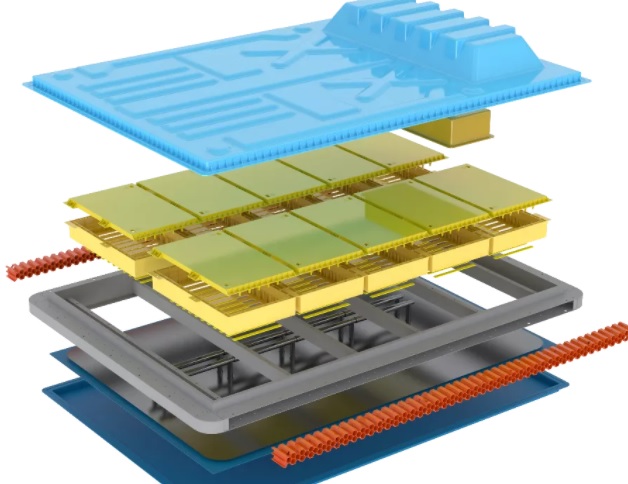As automakers accelerate their development towards all-electric vehicles, Saudi Basic Industries Corporation (SABIC) continues to develop thermoplastic-based solutions, using expertise and knowledge to help the automotive industry optimize the performance of electric vehicles (EV).
Help the battery pack to reduce weight by 30%

The most noteworthy among them is that SABIC’s automotive business unit has adopted a system engineering method to develop a plastic-based EV battery pack concept to explore the value of lightweight plastics to meet the automotive industry’s need for flexible design, performance enhancement, The need to strengthen safety and improve economic efficiency.
Compared with conventional battery pack designs that use traditional materials such as aluminum and other metals, SABIC uses a lightweight thermoplastic battery pack concept, which can potentially reduce the weight of each component by 30%-50%, increase energy density, and simplify assembly Process, reduce costs, improve thermal control and safety, and enhance crash resistance.
Abdullah Al-Otaibi, General Manager of SABIC Engineering Thermoplastics and Market Solutions, said: "Our expert team is not limited to matching materials to the various components of the existing design in the work of automotive electrification technology, but fully considers The entire EV battery system and vehicle structure in order to provide our automotive customers with the support they need and help them achieve vital automotive development goals."
EV battery pack concept
The battery pack concept developed by SABIC takes full advantage of the properties and strength of thermoplastics to improve performance, reduce cost and weight, and support mass production. Highlights of the battery pack concept include:
• A single battery is integrated in a battery bag and then placed in a thin-walled battery module box, which is molded from SABIC® flame-retardant polypropylene compound filled with 30% glass fiber.
• The double-layer structure, novel ribs and innovative functional integration, all thanks to SABIC thermoplastics, are designed to reduce product weight and meet structural requirements.
• Innovative use of the anisotropic thermal conductivity of plastics to optimize thermal management.
• The battery tray uses an integrated plastic-gold hybrid structure made of STAMAX™ FR long glass fiber PP material, which can optimize heat conduction, meet drop test requirements, and absorb the huge impact energy of side frame members.
• The battery pack shell is molded from STAMAX FR resin. This material meets the requirements of UL94 V-0 flame retardant rating, and the cover can be metalized to shield electromagnetic interference (EMI) and radio frequency interference (RFI).
• Reduce the number of parts, improve assembly efficiency, save costs, and enjoy the inherent design freedom of thermoplastic materials.
Collaborative Innovation
SABIC focuses on the continuous expansion of professional technical knowledge and products to provide support for the innovation of electric vehicle batteries and other electric vehicle applications. SABIC has created a technical team composed of chief engineers, researchers and senior scientists. Their responsibilities are to work with customers, development partners, and other parties in the entire value chain (from OEM, all levels of suppliers to tooling suppliers and testing Institutions) to carry out in-depth communication and collaboration.
Al-Otaibi said: “The automotive ecosystem is undergoing changes in seismic displacement levels. Only when the entire supply chain is closely coordinated can the automotive industry continue to develop and improve on the basis of current electric vehicle technology. SABIC has been adhering to this for a long time. Way of thinking and operation. In the future, we will continue to pursue cooperation opportunities and partners that encourage innovation."
Through continuous cooperation with the automotive industry, SABIC expects that several large-scale battery cases molded from thermoplastics will be put into mass production of electric vehicles in 2024. A certain plug-in hybrid electric vehicle (PHEV) in China has used SABIC PP compound to replace aluminum in the production of battery pack casings, thereby reducing weight, expanding design freedom, controlling warpage, and bringing other Kind of benefits. .
At present, there are other mass-produced electric vehicles around the world that use SABIC materials for various components, including battery holders, battery boxes, battery modules, and battery casings.
In addition to developing new materials to meet the requirements of electric vehicles, SABIC is also committed to the development of various related technologies, such as: large-scale component manufacturing, connection and assembly, collision analysis and design, battery thermal management, flame retardancy, electrical characteristics and performance test.

